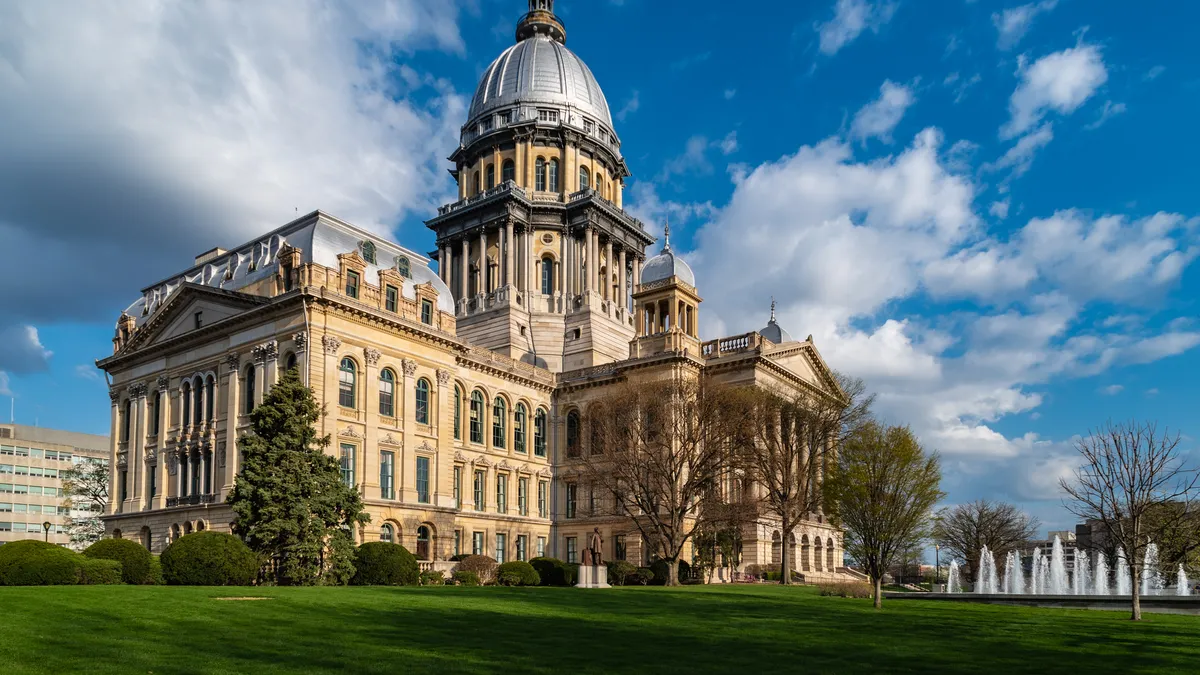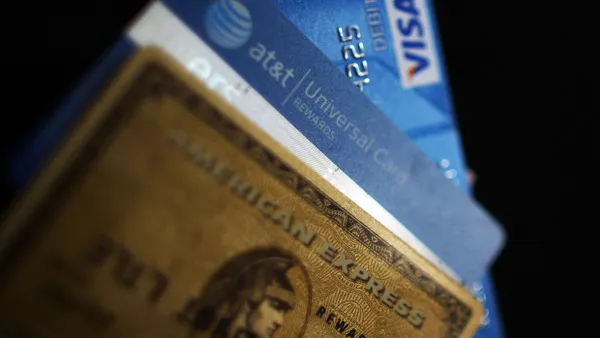Jodie Kelley is CEO of the Electronic Transactions Association which represents the payments technology industry.
There are many things we take for granted. When we turn our key in the ignition, the car turns on. When we flip a switch, the lights come on. And when we tap, insert or enter our credit or debit card online, we can make a secure purchase in seconds.
Yet the Illinois General Assembly decided that it should unilaterally change this complex, well-functioning, secure system to exempt sales taxes and tips from the transaction by passing the Illinois Interchange Fee Prohibition Act this year. If that sounds like a terrible idea, it is.

There are thousands of companies that have worked and invested to make payments simple. This system is highly regulated, highly competitive, largely invisible to the consumer, and pretty remarkable in scope and size. It allows millions of transactions every second, and ensures people can move through their days, buy groceries, pay for gas, order school supplies online, and send friends and family money. It’s completely hassle free and worry free.
And, it’s not just consumers that benefit. Easy electronic payments enable businesses – and especially small businesses – to sell to more customers, grow their market, and optimize how they operate. Electronic payments created the foundation for people to shop online.
No less an authority than Federal Reserve Board Chair Jerome Powell has called our payments system “safe, effective, dynamic, and efficient” in how it serves households and businesses across the economy.
Yet the General Assembly decided that it should unilaterally change this complex, well-functioning, secure system to exempt sales taxes and tips from the transaction. It took this step not in the light of day, but in a closed-door deal struck in June just before the Legislature adjourned. There were no hearings and no conversations with the companies that make payments possible before lawmakers made this consequential decision.
What’s worse, the measure will almost exclusively benefit corporate mega-stores that lobbied for the change and rake in billions of dollars in profits every quarter. Everyone else will be shortchanged.
Illinois’ decision will force the state’s 1.3 million small businesses to spend hundreds of millions of dollars in the first year alone, and more in future years to update future technology and to comply. These are added expenses that will hurt small businesses by adding extra expenses to their bottom line while making it harder for them to compete, reducing the time and money small businesses have to invest in innovations that help them grow.
The law helpfully suggests the small businesses can request refunds from their payments processor. What does that look like? Gathering up receipts in a box and shipping it off? How much extra burden is put on the small business owner to do this?
Additionally, customers could face a situation where they couldn’t use a credit or debit card to pay for taxes and tips. Imagine buying a hot dog, whipping out your credit card to pay, to learn you need cash to pay for the taxes and a tip.
Significantly, the law will also decrease the ability of all players to fight fraud, forcing change in a system that today identifies threats instantly and keeps consumers from harm – including unauthorized charges.
Illinois is the only state in the country to take this action. For good reason. The law is deeply flawed legally and should be struck down.
With all that’s at stake, it’s no surprise that a diverse group of businesses are opposed to the act. Even the Comptroller of the Currency, the independent bank regulatory agency at the U.S. Treasury Department, has urged the state to reverse course. In a brief last week, the Comptroller said Illinois’ act “is an ill-conceived, highly unusual, and largely unworkable state law that threatens to fragment and disrupt this efficient and effective [banking] system.”
For those reasons, the courts and the Illinois legislature should make sure the law never takes effect.











